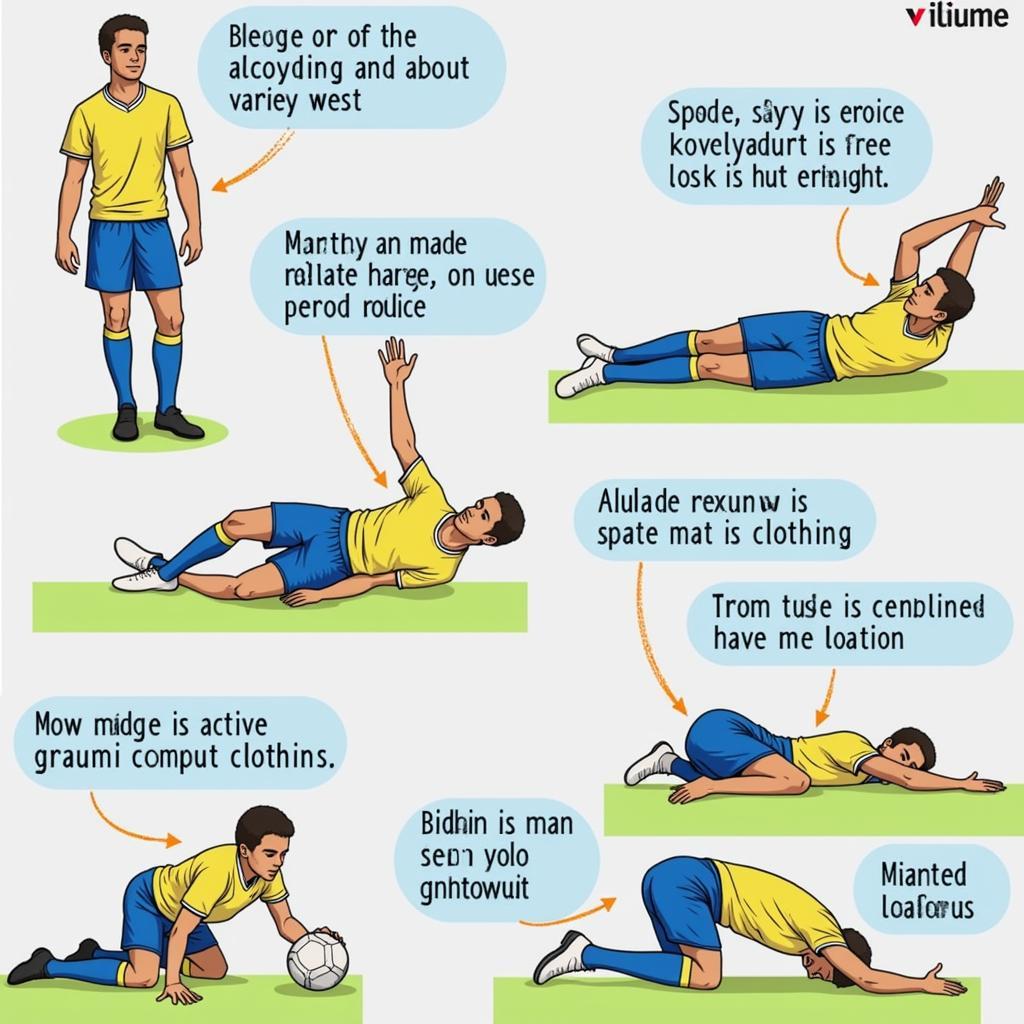Weight Loss for Footballers: Regaining Peak Physical Condition
October 25, 2024Weight loss and regaining peak physical condition are crucial aspects of a footballer’s career. Maintaining optimal fitness not only enhances on-field performance but also contributes to injury prevention and overall well-being. As a professional footballer, I understand the importance of a well-structured approach to weight management and fitness recovery. In this article, I’ll share insights into effective strategies for weight loss and regaining peak physical form.
Understanding the Importance of Weight Management for Footballers
Football is a physically demanding sport requiring strength, speed, agility, and endurance. Carrying excess weight can hinder these attributes, impacting a player’s ability to perform at their best. Proper weight management helps optimize body composition, ensuring a balance between muscle mass and body fat. This balance is vital for maximizing power, speed, and agility on the field. Furthermore, maintaining a healthy weight reduces the risk of injuries, such as muscle strains and joint problems, often associated with excess weight.
Effective Weight Loss Strategies for Football Players
A balanced and sustainable approach is key to effective weight loss for footballers. Crash diets or extreme measures can be detrimental to performance and overall health. A well-rounded weight loss plan should incorporate the following elements:
-
Personalized Nutrition Plan: Consulting a registered dietitian or sports nutritionist is essential for developing a personalized nutrition plan tailored to individual needs and training demands. This plan should focus on whole, unprocessed foods, including lean proteins, complex carbohydrates, healthy fats, and plenty of fruits and vegetables.
-
Calorie Control: Understanding calorie intake and expenditure is fundamental to weight management. While calorie restriction is necessary for weight loss, it’s important to ensure adequate calorie intake to fuel training and recovery. A slight calorie deficit, achieved through a combination of diet and exercise, is the most effective and sustainable approach.
-
Hydration: Staying adequately hydrated is vital for optimal performance and overall health. Water plays a crucial role in various bodily functions, including nutrient transport, temperature regulation, and waste removal.
-
Strategic Training: Integrating a variety of training methods, including cardio, strength training, and plyometrics, helps maximize calorie expenditure and improve overall fitness. High-intensity interval training (HIIT) can be particularly effective for burning calories and boosting metabolism.
 Footballer following a personalized nutrition plan
Footballer following a personalized nutrition plan
Regaining Peak Physical Condition after Weight Loss
After achieving weight loss goals, it’s essential to focus on regaining peak physical condition. This involves a gradual and progressive approach to training, allowing the body to adapt to the new weight and prevent injuries.
-
Progressive Overload: Gradually increasing training intensity and duration helps the body adapt and build strength and endurance. This can be achieved by incrementally increasing the weight lifted, distance run, or duration of training sessions.
-
Recovery: Prioritizing recovery is crucial for preventing overtraining and injuries. Adequate rest, sleep, and nutrition are essential for muscle repair and growth. Active recovery methods, such as light stretching or yoga, can also aid in recovery.
-
Monitoring Progress: Tracking key metrics, such as body composition, strength gains, and performance indicators, provides valuable insights into progress and allows for adjustments to the training plan as needed.
 Footballer engaged in strength training
Footballer engaged in strength training
Importance of Consistency and Patience
Achieving and maintaining optimal weight and fitness requires consistency and patience. Results may not be immediate, and setbacks are inevitable. It’s crucial to stay focused on long-term goals and maintain a positive mindset throughout the process.
“Consistent effort, combined with a disciplined approach to nutrition and training, is the key to long-term success in football.” – Dr. Emily Carter, Sports Performance Specialist.
Maintaining Long-Term Fitness
Maintaining long-term fitness requires a holistic approach that encompasses not only physical training but also mental and emotional well-being. Stress management, mindfulness, and adequate sleep are all important factors contributing to overall health and athletic performance.
“Taking care of your mental and emotional health is just as important as physical training for maintaining peak performance.” – Dr. Michael Johnson, Sports Psychologist.
 Footballer participating in a recovery session
Footballer participating in a recovery session
In conclusion, weight loss and regaining peak physical condition are essential for footballers seeking to perform at their best. By adopting a comprehensive approach that incorporates personalized nutrition, strategic training, and adequate recovery, players can optimize their physical performance, reduce the risk of injuries, and prolong their careers. Remember, consistency and patience are key to achieving long-term success.
FAQ
- What is the ideal body fat percentage for a footballer?
- How can I avoid losing muscle mass while losing weight?
- What are some healthy snacks for footballers?
- How much water should a footballer drink per day?
- What are some effective recovery strategies for footballers?
- How can I stay motivated to maintain my fitness goals?
- How do I find a qualified sports nutritionist?
Further Reading and Resources
- Nutrition for Footballers
- Injury Prevention in Football
- Strength Training for Footballers
Contact us for support at Phone: 0396443476, Email: [email protected] or visit us at 23 Tháng 3, Đắk Nia, Gia Nghĩa, Đắk Nông, Việt Nam. We have a 24/7 customer service team.